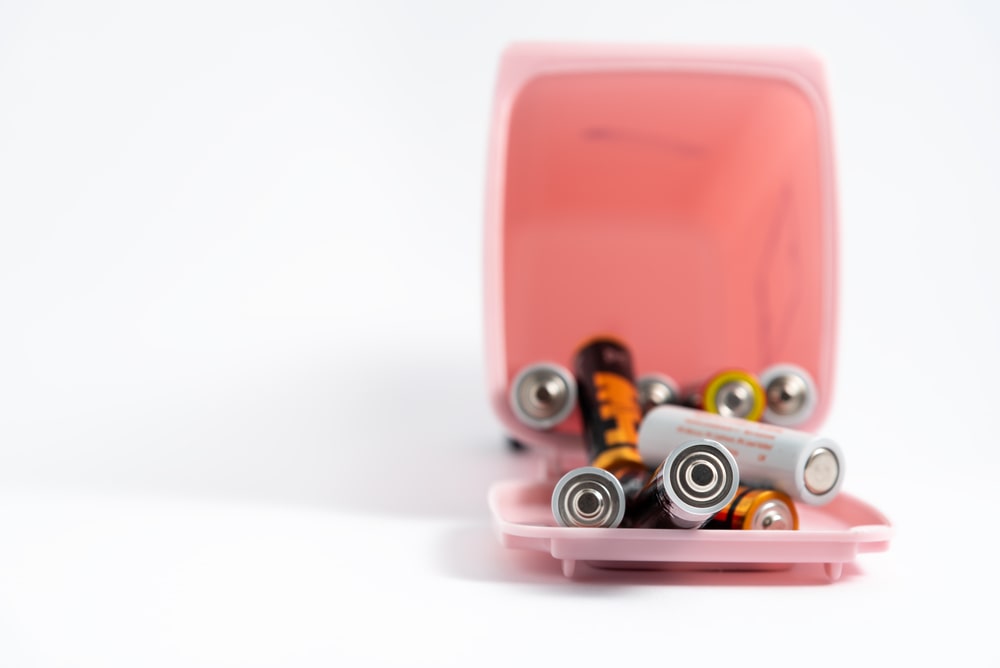How many lithium-ion batteries are in your home? Before you answer the question, think beyond the AA batteries that power your TV remote and electric toothbrush. Just about every battery-powered electronic device you own either has, or can use, lithium-ion batteries. Those batteries should never be thrown away in the trash.
Lithium-ion batteries should always be recycled. Whether that means taking them to your local hazardous waste facility or dropping them in a recycling bin at the hardware store. They should never, ever be thrown in the trash. Why? Because they pose a serious fire risk.
Fire is the number one reason for recycling rechargeable batteries. Even if you don’t care about sustainability, landfill space, the environment, etc., you should at least recycle batteries to prevent dumpster, truck, and transfer station fires.
-
Short-Circuits and Overheating
Rechargeable lithium-ion batteries are especially prone to fire caused by short-circuiting and overheating. The potential for both scenarios is pretty high once batteries enter the waste stream.
For example, a lithium-ion battery coming in contact with a piece of conductive metal can cause a short circuit. Short-circuiting can lead to overheating. Overheating can cause a battery to explode or burst into flame. Note that overheating can occur even when short-circuiting is not a factor.
Batteries can overheat sitting in a dumpster for days on end. Dumpsters are metal, and they can get awfully hot in the bright sun. An overheating battery in a dumpster is subject to the same explosion and fire risk as a short-circuiting battery in the back of a truck.
If you suspect that fire risks are not that high, you might want to contact the Montgomery County transfer station in the DC area. A recent fire at the station was blamed on batteries. But guess what? The November 11 fire was the 16th such fire this year. Battery fires are a very real problem for trash haulers.
-
How You Can Help
The most effective thing you can do to help prevent battery fires is to never throw rechargeable batteries in the trash. Do not throw away lithium-ion batteries. Do not throw away NiCad and Ni-MH batteries. Either find a local merchant willing to recycle them or take them to your local environmental services department on their next hazardous materials recycling day.
In addition to these key principles, Salt Lake City’s Pale Blue Earth recommends the following recycling tips:
- Tape the Terminals – The best way to prevent short-circuiting is to tape the positive and negative electrodes before placing batteries in a recycling bin. Packing tape and duct tape both work well. Do not use electrical tape. It falls off too easily.
- Use Plastic Bags – You can make recycling even safer by placing individual batteries in separate plastic bags prior to recycling. The combination of tape and plastic bag will eliminate virtually all risk of batteries coming in contact with other batteries or pieces of metal.
- Utilized Recognized Recyclers – Whether you choose to take your batteries to the local hazardous waste facility or recycle them via a local retailer, do not leave your batteries with just anyone. A hazardous waste facility should always be fine. As for retailers, only leave batteries with those that participate in a recognized recycling program.
In closing, it is safe to dispose of alkaline batteries in the trash. A few decades ago, a federal law was passed to force battery manufacturers to remove toxic chemicals from alkaline batteries. Thus, they are not hazardous. But trash haulers would still prefer that you take alkaline batteries to a hazardous waste facility to avoid fires.




